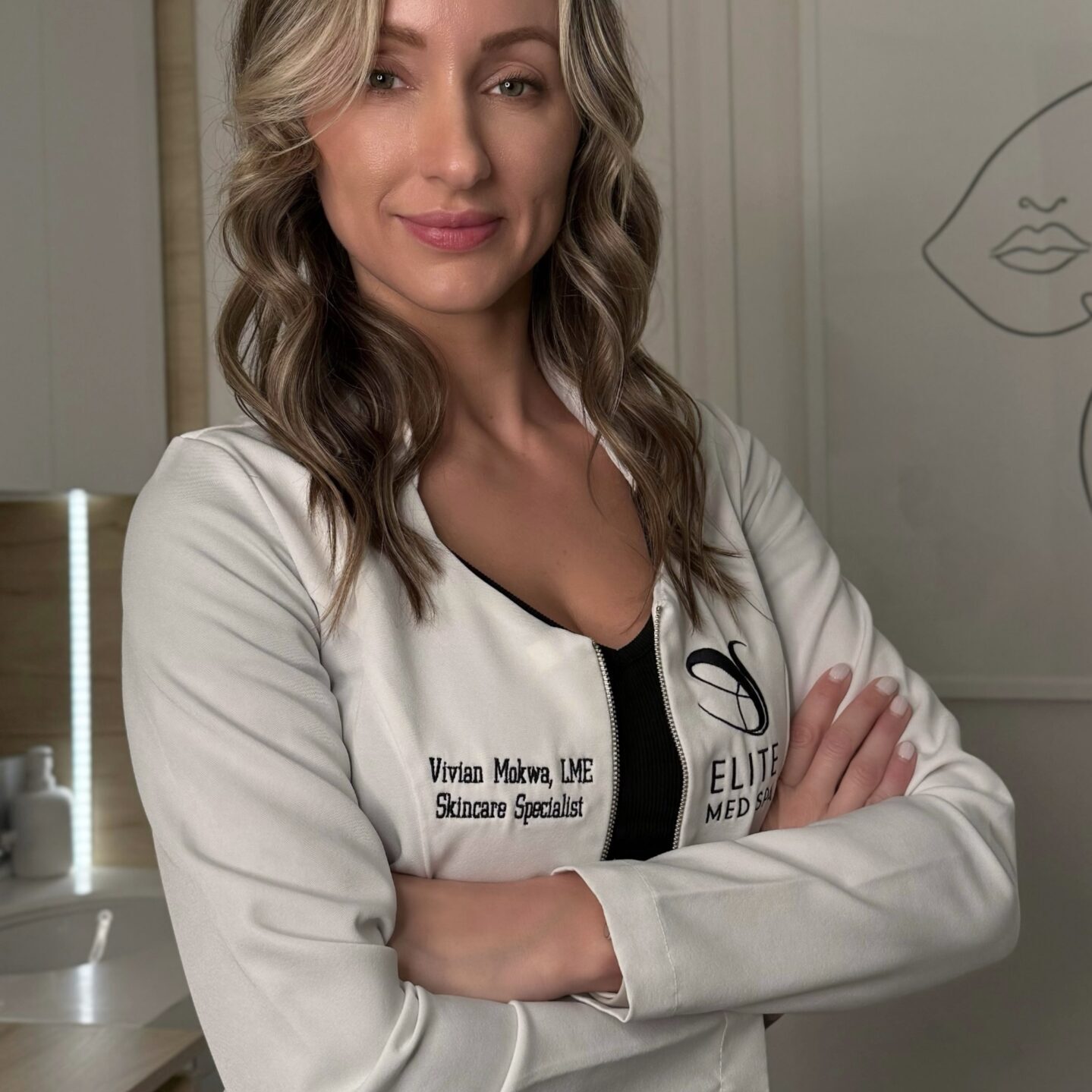
Expert Insights with Vivian Mokwa, Melasma & Acne Expert in Miami, Fl
What first drew you to the skincare field, and how has your career evolved since becoming licensed in 2008?
My passion for skincare began long before I became a licensed esthetician in 2008. From the start, I was fascinated by the science behind skin health and the transformative power of personalized treatments. Over the years, I have had the privilege of working in leading medspas across New Jersey, New York, and now Miami, gaining expertise in advanced skincare treatments, medical aesthetics, and cutting-edge technologies.

How has your personal experience with melasma shaped the way you treat it professionally?
Melasma is more than just a skin condition—it’s a journey, one that I deeply understand both professionally and personally. As someone who suffers from Melasma myself, I know firsthand the emotional and physical challenges that come with managing this complex pigmentation disorder. My experience has shaped my holistic, results-driven approach to treatment, blending science, technology, and lifestyle awareness to achieve long-term improvement.
What do you believe are the biggest misconceptions people have about treating melasma?
One of the biggest misconceptions about Melasma is that it can be corrected after one single treatment, but in reality, it’s a condition that requires long-term commitment. My philosophy is to avoid unnecessary treatments that cause inflammation and worsen pigmentation. Instead, I focus on progressive, controlled solutions while giving my clients the tools and knowledge to maintain results.
How do you approach melasma differently than other pigmentation issues in your practice?
My goal is to empower everyone with personalized solutions, realistic expectations, and the confidence to love their skin at every stage of their journey. While skincare is the foundation, in-office treatments help accelerate results and improve skin health when done strategically. I customize treatments based on my clients’ skin type, severity of Melasma, and how their skin reacts.
Why is medical-grade skincare more effective than over-the-counter products for melasma?
When it comes to treating Melasma, not all skincare is created equal. While over-the-counter (OTC) products may offer mild brightening effects, medical grade skincare is essential for effectively managing and reducing hyperpigmentation. Melasma is a complex, chronic condition that requires targeted ingredients at the right potency, delivery system, and formulation to work at a deeper, more effective level.
Are laser treatments effective for melasma, or do they risk making it worse in the long run?
I understand that many people seek out lasers and other heat based treatments hoping for a quick fix, and in reality it just breaks up existing pigment without stopping the overproduction of melanin. However, when it comes to Melasma, there is no shortcut, only consistent, targeted treatments and long-term maintenance will lead to sustainable results.
When treating Melasma consistently, noticeable improvement can be seen within a few weeks, but long-term control requires ongoing maintenance and trigger management. Factors like sun exposure, hormonal fluctuations, stress, heat, inflammation, and diet all influence melanin production and must be controlled for lasting results.
What role do antioxidants and sunscreen play in both the treatment and prevention of melasma?
There are a few core products that are necessary to correct hyperpigmentation and prevent future damage. Antioxidants play a very important role by reducing oxidative stress, controlling inflammation, and preventing further pigmentation. Melasma is often triggered by UV exposure, pollution, and heat, all of which generate free radicals that stimulate melanin production. Antioxidants neutralize these free radicals, helping to prevent hyperpigmentation from worsening.
The next core product that prevents melanin overproduction and reduces inflammation, is a medical grade Broad-spectrum sunscreen 30SPF or higher. Playing a crucial part, as it protects against UV rays, visible light (blue light), and infrared radiation (heat).
Why is a personalized, long-term approach essential for managing melasma successfully?
There is no one-size-fits-all solution. Melasma is a complex and chronic condition, requiring a personalized, science-backed approach that addresses both skin health and lifestyle triggers. Unfortunately, there are many misleading ads out there promising unrealistic results. My treatment plan is designed to fade existing pigmentation, prevent new discoloration, and strengthen the skin barrier for long-term results.












